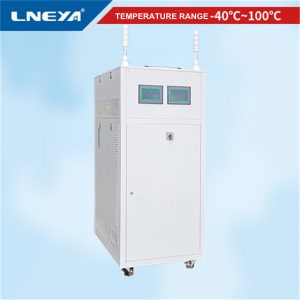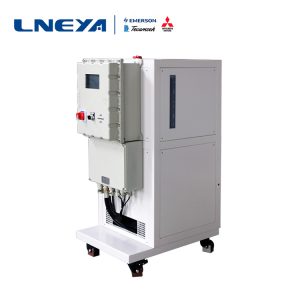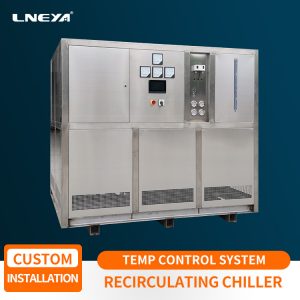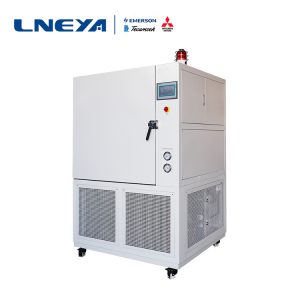What instruments can the LNEYA Laboratory Recirculating Chiller assist with?
Laboratory recirculating chillers have a wide range of applications in scientific research and industrial production, providing precise temperature control for various experiments and instruments.
The following are some common scenarios and supporting instruments for chillers in laboratories:
- Spectroscopy equipment: Spectrometers (such as UV visible spectrometers, infrared spectrometers, Raman spectrometers, fluorescence spectrometers, etc.) may require the light source, detector, and sample cell to operate at a constant low temperature to ensure measurement accuracy during optical measurements.
2. Mass spectrometer: Mass spectrometry analysis instruments, including liquid chromatography-mass spectrometry (LC-MS), gas chromatography-mass spectrometry (GC-MS), etc., require cooling in key areas such as ion sources and detectors to reduce noise, improve resolution and stability.
3. Electron microscopy (SEM, TEM): Some electron microscopes require cooling of the electron gun and sample chamber, especially in high-resolution imaging and diffraction modes, to reduce thermal noise and prevent sample blurring due to thermal drift.
4. Laser: Different types of lasers, especially solid-state and semiconductor lasers, require cooling of their laser media and heat dissipation components to prevent overheating, ensure stable laser output, and extend laser lifespan.
5. Vacuum system: The heat generated by vacuum equipment such as molecular pumps and diffusion pumps during operation needs to be cooled by a chiller.
6. Common laboratory instruments: rotary evaporator, distillation device, electrophoresis instrument, fermentation tank, condenser, reaction kettle, etc. The heat generated by these equipment during operation needs to be effectively cooled by a chiller to control reaction conditions and ensure the accuracy of experimental results.
7. Materials Science and Engineering: Semiconductor lasers, vacuum coating machines, nanomaterial synthesis equipment, etc. These high-tech equipment need to maintain a constant low temperature environment during the preparation process.
8. Data collection and analysis: Laboratory data collection systems, electronic devices, and other precision instruments that require temperature control to ensure stable performance.
In summary, laboratory recirculating chillers play an important role in various experiments involving temperature control and high-end precision instruments, ensuring precise control of the experimental process and long-term stable operation of the instruments.
Request a quote
Provide 7 * 24 free consultation and comprehensive solutions
Related recommendations
-
ISG/TM Motor Test Cooling System High Voltage Failure and Treatment Measures
1928The ISG/TM motor test cooling system is divided into two types in the industry: air-cooled and water-cooled. The working principle is to first inject a certain amount of water into the water tank in the machine, and then pass the ISG/TM motor test...
View details -
Low temperature circulating chiller startup and shutdown operation
1671When the low temperature circulating chiller is turned on, it can be automatically turned on when the manual start is selected. The automatic start-up needs to open the compressor exhaust shut-off valve, start the cooling water pump and the coolan...
View details -
Debugging steps of industrial water chiller in chemical industry
1628After completing the installation ofindustrial water chillers in chemical enterprises, certain debugging needs tobe carried out in the early stage ofoperation. Only through careful debugging can we find out whether there arehidden troubles in...
View details -
Explosion-proof cryogenic refrigeration unit icing, do you know what is going on?
1942When using an explosion-proof cryogenic refrigeration unit, many users do not know how to solve the problem of icing and frosting. In fact, the professional can tell you with certainty, no. The two causes are different, so the processing method is...
View details
 LNEYA Industrial Chillers Manufacturer Supplier
LNEYA Industrial Chillers Manufacturer Supplier















Submit for consultation
We will reply to you within 24 hours